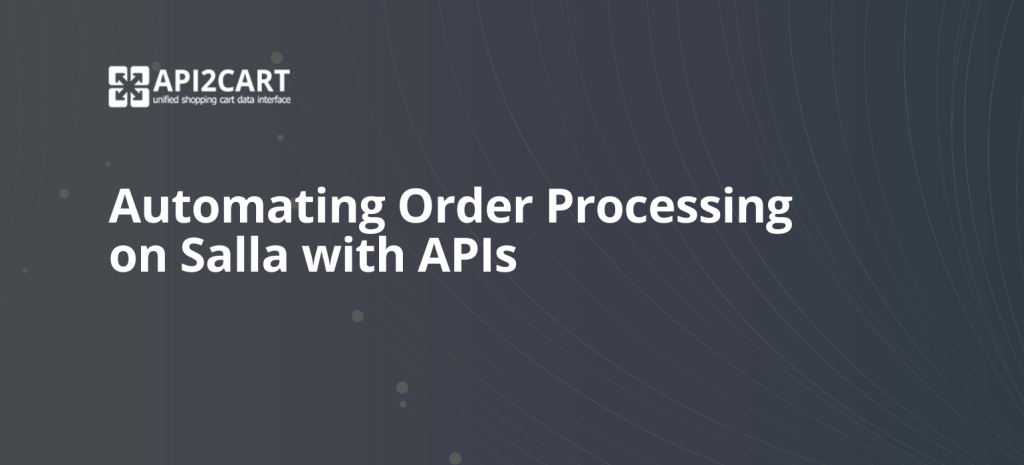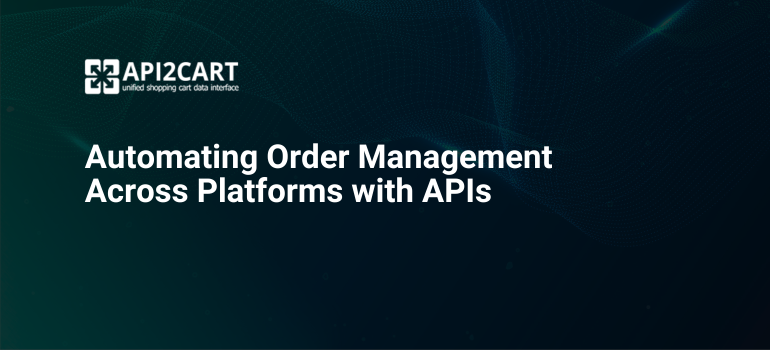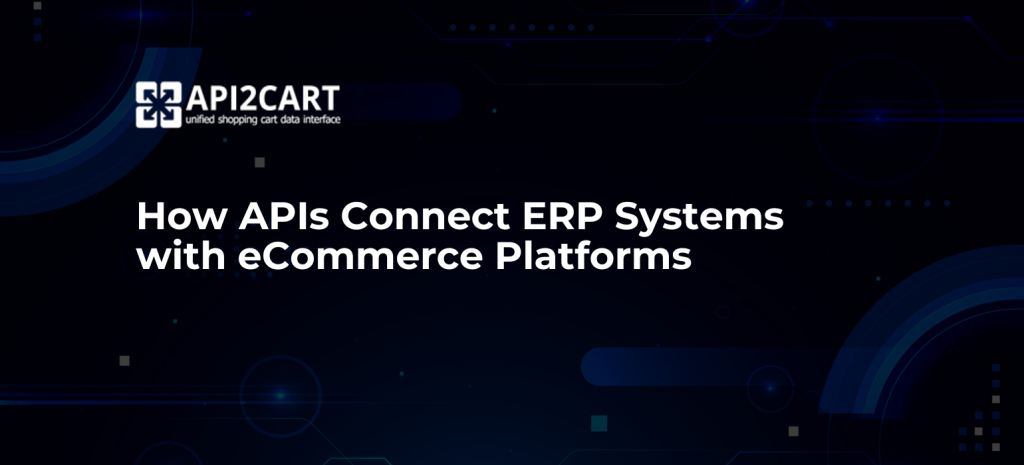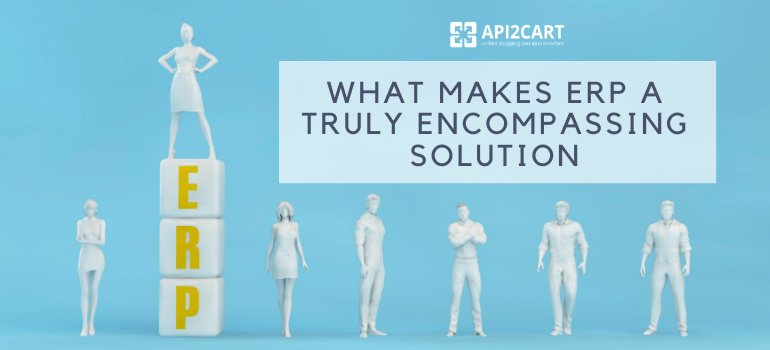
We bet all the retailers want to multiply their sales volumes. But when the moment comes, overweighting amounts of sales can turn out as a hard headache for the entrepreneur. Of course, if they aren’t prepared for the massive flow of orders. To meet the increased demand decently, retailers have to start looking for a suitable ERP solution beforehand.
Me managing endless order flow without ERP software:
 via GIPHY
via GIPHY
It Tastes Better with ERP
ERP (enterprise resource planning) system, is a management software which embraces all the core eCommerce business processes. ERP makes it possible to manage finance, marketing, inventory, orders, service delivery, and shipping from one system, which is very convenient.
Building such a comprehensive solution takes much time and effort. Planning and implementing the ERP system into the enterprise activities is accompanied by huge business transformations and mainly requires some extra customization, which is a costly and long-lasting process. Nevertheless, it is worth each second and cent (no matter what bad mouths are telling).
ERP Benefits
As we already mentioned Enterprise Resource Planning system offers multiple opportunities for online store owners. So, let's move to the potential benefits of enterprise solutions:
- reducing prone manual entry errors;
- synchronizing all the data in a centralized system;
- simplifying various processes including automated tax compliance, managing price and product changes,
- enhancing business reporting
- notifying customers on order status etc.;
- improving the eCommerce flexibility to go multichannel.
A Tour at the ERP’s Kitchen
In order to perform an array of various functions properly and be truly helpful, any ERP solution needs to collect information from the online store (products data, orders, shipping, relevant stock levels etc.) and be able to manage it, i.e. to get synchronized with the eCommerce shop and all sales channels merchant uses.
So, once an ERP system gets a client, it has to create an integrated account immediately. The tricky moment is that various online shops are based on different shopping carts, while an ERP has to be able to get the data stored at any of those.
It is always possible to try to develop the integration with shopping carts by yourself, but it can eventually turn out to be a very expensive and tedious process. Let's see below all the main challenges when developing integration with eCommerce platforms manually.
Integration Reality
If you decide to develop integration with your ERP solution and eCommerce platforms such as Magento, PrestaShop, WooCommerce, and other platforms you must be mindful of the integration challenges that can occur.
- 1. Time. On average, the development of integration with one platform takes 4-12 weeks. That is the time when your developer will learn the platform logic and architecture, put effort into reducing the friction between the product and the system, and much more. When you want more than one integration, you can multiply this time by the number of platforms you need to integrate with.
- 2. Money. Typically you will have to pay a few thousands of dollars per one integration and plus maybe extra if the need for additional development occurs. Once the integration is complete and successfully iterated, it is not the end. You will need developer work and attention because new versions will appear and this will mean upgrades to be made. Plus, your clients might request modifications and custom improvements.
- 3. Additional resources. Each integration is both a lot of work to be done and a separate thorn on the side that never goes away after the work is done, that somebody has to deal with. For better and more reliable results, you will want someone to be reliable and expert, and that is not easy to find and difficult to allocate if they are a part of your product team.
Simplified eCommerce Integration for ERP Solution
For you as an Enterprise Resource Planning software provider, integrations cannot be avoided but can be definitely simplified with a unified API provided by API2Cart. It allows integration with multiple shopping platforms and marketplaces such as Magento, Shopify, OpenCart, WooCommerce, Prestashop, Amazon, Etsy, and other platforms in one go. No separate connections for every other platform, just one integration with API2Cart and you get access to more than 40 eCommerce platforms. Here is how your ERP can perform your functionality with API2Cart:
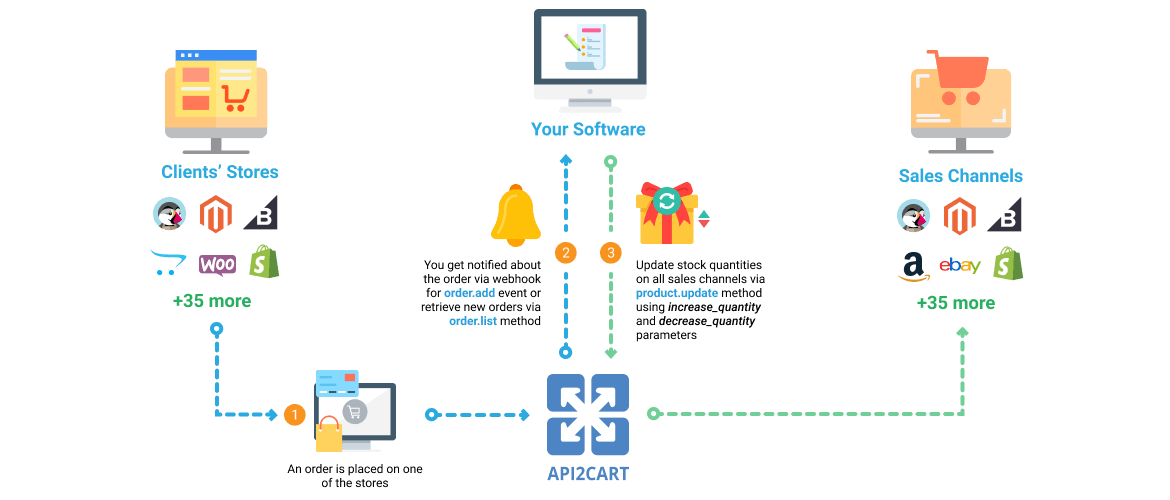
With the help of API2Cart your ERP soltion will be able to:
- Get products lists along with prices, images, descriptions, attributes, variants, categories, etc.
- Sync inventory on all storefronts to show accurate items quantity
- Get lists of orders, as well as order details
- Determine shipping details (e.g. names, addresses, tracking orders, and carriers)
- Organize the data in detailed reports
With API2Cart you will avoid spending a lot of money and valuable resources on developing integration with eCommerce platforms. By integrating via API2Cart you pay one price for as many connections as you need. Once the connection with API2Cart is complete, you’ll be able to quickly access the data from your customers’ e-stores and use it for your needs.
API2Cart provides all the necessary API methods that help ERP solutions to provide all their functions to e-retailers.
- For working with products: product.update/ list
- For working with orders: order.list/ add/ update/ shipment.tracking.add/ shipment.update/ shipment.add
- For working with categories: category.add/ delete/ update/ assign/ unassign/ image.add/ image.update/ image.delete
- For working with customers: customer.list
Detailed information about all the supported methods for managing the e-store data you can find in our API Docs.
You can give it a try or schedule a consultation with our representative in one click to get detailed information on how API2Cart can help your ERP software to win more clients and integrate with multiple shopping platforms in an easy and fast way.
